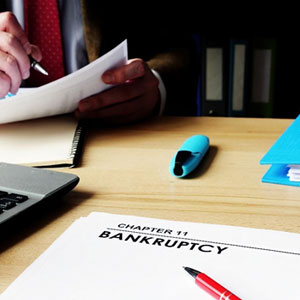 In this article, you can discover:
In this article, you can discover:
- How Chapter 11 bankruptcy can affect your business operations and ownership.
- The potential advantages and drawbacks of filing for Chapter 11 bankruptcy.
- Insight into the debtor’s role, automatic stay, and restrictions during a Chapter 11 bankruptcy.
How Does Chapter 11 Bankruptcy Impact A Business?
The effect of a Chapter 11 bankruptcy on a business can range from significant to minimal, depending on the type of Chapter 11 filed. A Chapter 11 filing will result in creating a new entity—known as the debtor in possession—requiring separate bank accounts and other changes.
If all creditors aren’t paid out fully, a traditional Chapter 11 could also result in a shift in the company’s ownership. However, with the introduction of the new Subchapter V, existing owners can navigate through bankruptcy and maintain ownership on the other side, making the process less daunting for potential owners.
What Are The Advantages Of Filing For Chapter 11 Bankruptcy?
Filing for Chapter 11 bankruptcy can provide a financial cushion for businesses struggling with debt. If a business has a consistent revenue stream but that revenue is insufficient to generate free cash flow due to overwhelming debt, bankruptcy may be an appropriate option. Once the debt is minimized or eliminated, the free cash flow can then be used for various business operations—like paying equity holders and employees, purchasing new equipment, or upgrading facilities—potentially reviving the business.
What Are The Drawbacks Of Filing For Chapter 11 Bankruptcy?
The major disadvantages of Chapter 11 bankruptcy are the time and expense it requires. Whether it is a traditional Chapter 11 or a Subchapter V small business bankruptcy, the process can be costly. Even though Subchapter V reduces these expenses, it is still not a cheap option. The proceedings can place an additional strain on a business already grappling with cash flow issues. Moreover, it can divert time and energy from business operations towards handling the bankruptcy itself.
What Role Does A Debtor In Possession Play In Chapter 11 Bankruptcy?
The debtor in possession is essentially the new business entity formed after filing for bankruptcy. It takes over all the assets of the former business that become part of the bankruptcy estate. Post-bankruptcy, any business operations are conducted by the debtor in possession using these assets.
What Happens To Existing Contracts And Leases During Chapter 11 Bankruptcy?
Existing contracts and leases transfer from the former business to the debtor in possession. If these agreements haven’t been fully performed by both parties, the debtor in possession has the power to either continue with or reject these contracts or leases, offering significant control over ongoing agreements.
What Is The Automatic Stay In Chapter 11 Bankruptcy?
The automatic stay refers to the halt of any creditor’s attempts to collect debts once a bankruptcy case is filed. The purpose is to stop collection efforts and allow the debtor to compile its debts and creditors and create a systematic plan to repay these debts through the bankruptcy process.
Are There Any Restrictions On The Debtor’s Actions During Chapter 11 Bankruptcy?
Yes, there are certain restrictions on the debtor during Chapter 11 bankruptcy. The debtor is generally free to operate as before, but they must operate the business favorably for both the equity holders and creditors. Also, they may be unable to use certain assets secured before filing for bankruptcy without obtaining permission from either the court or the creditor holding those secured debts.
For more information on the Impact Of Chapter 11 Bankruptcy On A Business, an initial consultation is your next best step. Get the information and legal answers you are seeking by calling (205) 506-3354 today.

Call Us Now For A Personalized Case Evaluation
(205) 506-3354

